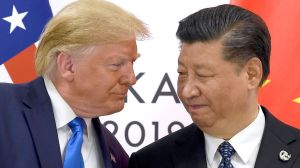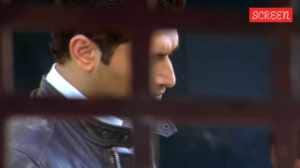Gujral’s man bows out as top guns boom in House
NEW DELHI, May 6: Newly-appointed Officer on Special Duty Bhabani Sengupta, today resigned following an uproar in Parliament over his appoi...

NEW DELHI, May 6: Newly-appointed Officer on Special Duty Bhabani Sengupta, today resigned following an uproar in Parliament over his appointment. His resignation has been accepted.
While accepting the resignation “with regret”, Prime Minister I K Gujral said, “I hope it will not affect your literary and academic efforts or our longstanding friendship.”
He also regretted the “inconvenience” caused to Sengupta.
In an interview with The Indian Express on Sunday, Sengupta had spoken about the likelihood of a settlement on Siachen and Kashmir during the bilateral meeting between the Prime Ministers of India and Pakistan in Male. He had also said that India had no use in making nuclear weapons.
It is believed that Prime Minister I K Gujral has hauled him over the coals for airing his views, which are totally at variance with the country’s foreign policy, to the press.
Sengupta, who was supposed to have been part of the Indian delegation to the SAARC summit in the Maldives, will not be going now.
In the Lok Sabha today, Samjawadi Janata Party (SJP) leader Chandra Shekhar led the attack against Sengupta’s appointment. He was joined by the Bharatiya Janata Party (BJP), Congress and Shiv Sena leaders. The Prime Minister was not present, but leader of House Ram Vilas Paswan assured that he would come to the House with a statement.
Tentatively scheduled for 2 pm this afternoon, the Prime Minister’s statement was later deferred to noon tomorrow. Congress and BJP members demanded that Sengupta should not be allowed to take charge till then. The issue came up immediately after question hour, with Chandra Shekhar reading out a letter written by Sengupta to The New York Times in 1974, soon after India exploded a nuclear device in Pokhran.
Sengupta, then a senior fellow at a United States university, had warned the international community against assuming that India will remain a nuclear pacifist for ever. He suggested withholding aid till India gave a guarantee that it would not develop nuclear weapons.
Sengupta wanted the guarantee written into the Indian Constitution, through an amendment sponsored by the Government.
Chandra Shekhar said he had written to Gujral, suggesting that Sengupta should be asked to relinquish office. He “cautioned” government officials that “any paper of sensitive nature should not be given to this officer.”
Leader of Opposition Atal Behari Vajpayee, argued that Sengupta could not be appointed on such a “sensitive post,” if he was not in agreement with the country’s policy as indicated by the 1974 letter. “There is no indication that he has changed his views,” the BJP leader said.
Vajpayee charged that the appointment was based on friendship rather than merit, and wondered if it was made after all information on him had been collected.
His party colleague Pramod Mahajan referred to the established procedure in the United States, where a thorough scrutiny of a person’s credentials takes place before he is appointed to a top job.
Mahajan said there was a general consensus in the country on foreign policy. On whether the country should develop nuclear weapons, there could be differences, but there was agreement on keeping the options open.
Sengupta wanted the option closed, and he went against the consensus on issues like Comprehensive Test Ban Treaty (CTBT) and Kashmir, Mahajan said.
More than the BJP and Shiv Sena protests, the apprehension expressed by the Government’s ally, the Congress, would have concerned Gujral.
Congress chief whip Santosh Mohan Dev said it was “not desirable” that someone with Sengupta’s record should be advising the Prime Minister. Gently reminding the United Front about the Congress support to its Government, he said it was the Prime Minister’s prerogative to appoint anybody. But appointments at this level should take place only after “proper scrutiny.”
Dev drew attention to newspaper reports about the appointment and a television interview in which Sengupta is reported to have claimed that he was the “father” of the Gujral Doctrine.
Congressman R L Bhatia, a former minister of State for External Affairs, said Sengupta’s views were well known for long: They did not agree with the nation’s policy.
He wondered whether the Prime Minister wanted to test the pulse of the nation through Sengupta if the people be willing to make peace with Pakistan at the cost of handing Siachin over to that country.
Only Rupchand Pal (CPI-M) and Rajesh Pilot (Congress), offered what could be described as a guarded defence of Gujral’s choice.
The CPM member argued that people may not hold on to particular views for all time to come. Pilot, who entered the debate late, said the House should not dictate who should or should not be appointed in the PMO. It should just convey its feelings.






- 01
- 02
- 03
- 04
- 05

























